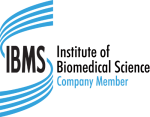Article of Interest (Coagulation): Effect of Oral Contraceptive on protein S and TFPI
Use of combined oral contraceptives is associated with a three- to six-fold increased risk of venous thrombosis. Hormonal contraceptives induce acquired resistance to activated protein C (APC), which predicts the risk of venous thrombosis. The biological basis of the acquired APC resistance is unknown. Free protein S (PS) and free tissue factor pathway inhibitor (TFPI) are the two main determinants of APC. Our objective was to assess the effect of both hormonal and non-hormonal contraceptives with different routes of
administration on free TFPI and free PS levels. We conducted an observational study in 243 users of different contraceptives and measured APC sensitivity ratios (nAPCsr), free TFPI and free PS levels. Users of contraceptives with the highest risk of venous thrombosis as reported in recent literature, had the lowest free TFPI and free PS levels, and vice versa, women who used contraceptives with the lowest risk of venous thrombosis had the highest free TFPI and free PS levels. An association was observed between levels of free TFPI and nAPCsr, and between free PS and nAPCsr. The effect of oral contraceptives on TFPI and PS is a possible explanation for the increased risk of venous thrombosis associated with oral contraceptives


